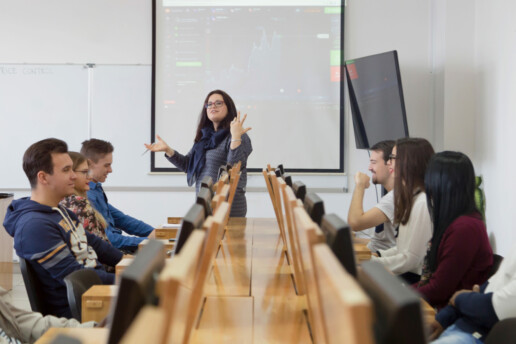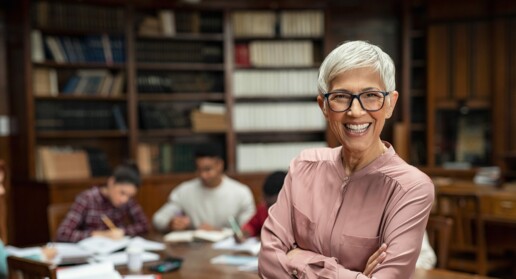A Long-Term Look at Relationships with Law School Faculty and Administrators, 2004-2023
In our last post, we examined how peer relationships between law students have changed over the last twenty years. Now we will consider the relationships between law students and their faculty and administrators over the same period.
Generally, law students have better relationships with faculty than administrators. In 2023, 71% of law students were satisfied with their relationships with faculty (rated 5 or higher on a 7-point scale) compared to only 55% of students who were satisfied with their relationships with law school administrators.
Much like satisfaction with peer relationships, satisfaction with faculty relationships has fluctuated over the last twenty years and may be a bit on the decline in recent years. Satisfaction with relationships with faculty hit an all-time high in 2016 at 80% but has been below the average of 75% since 2021.
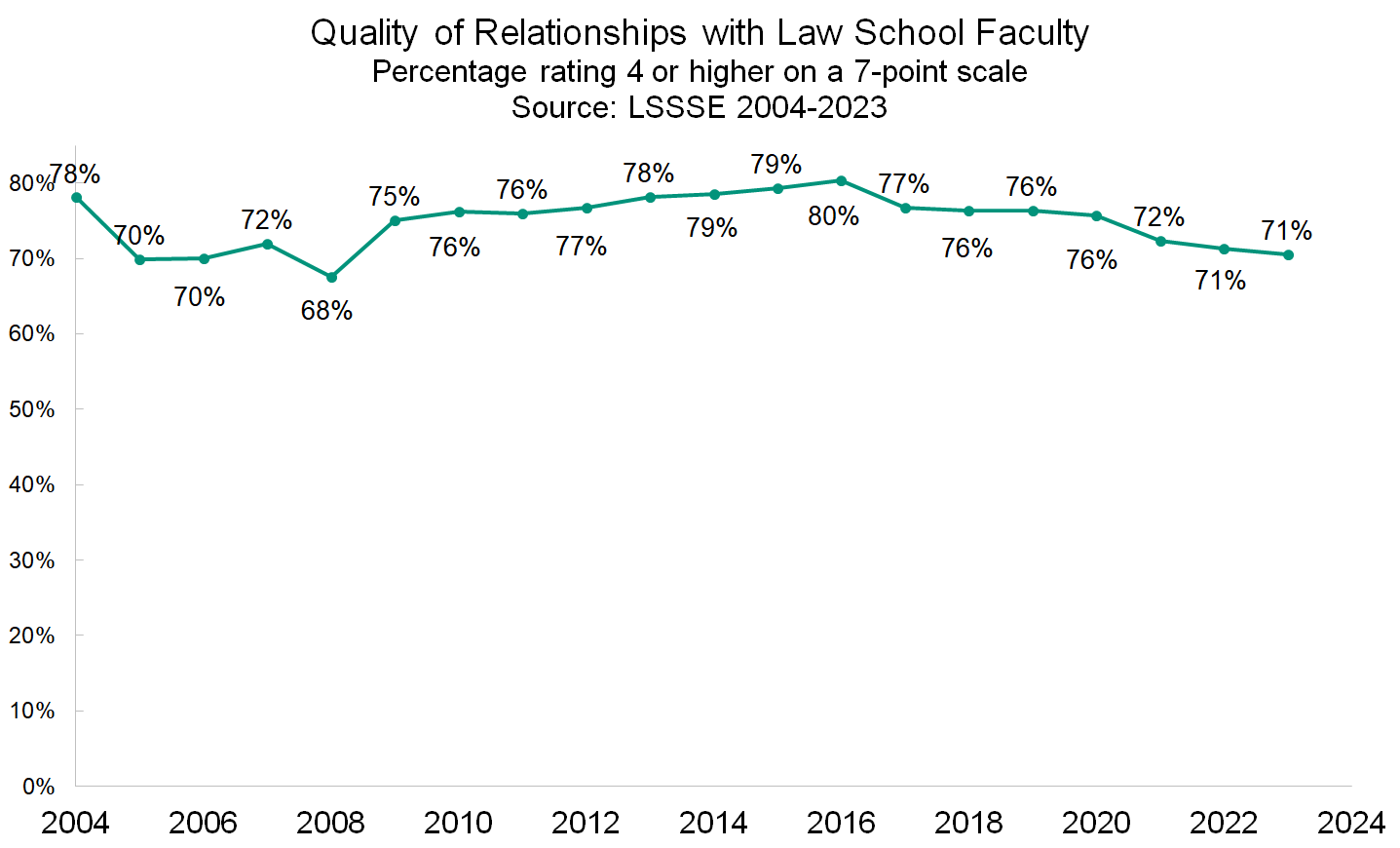
This next graph gives us the ability to look specifically at the difference between satisfaction with faculty relationships and the all-time average (75%) for all years since the inaugural LSSSE survey in 2004.
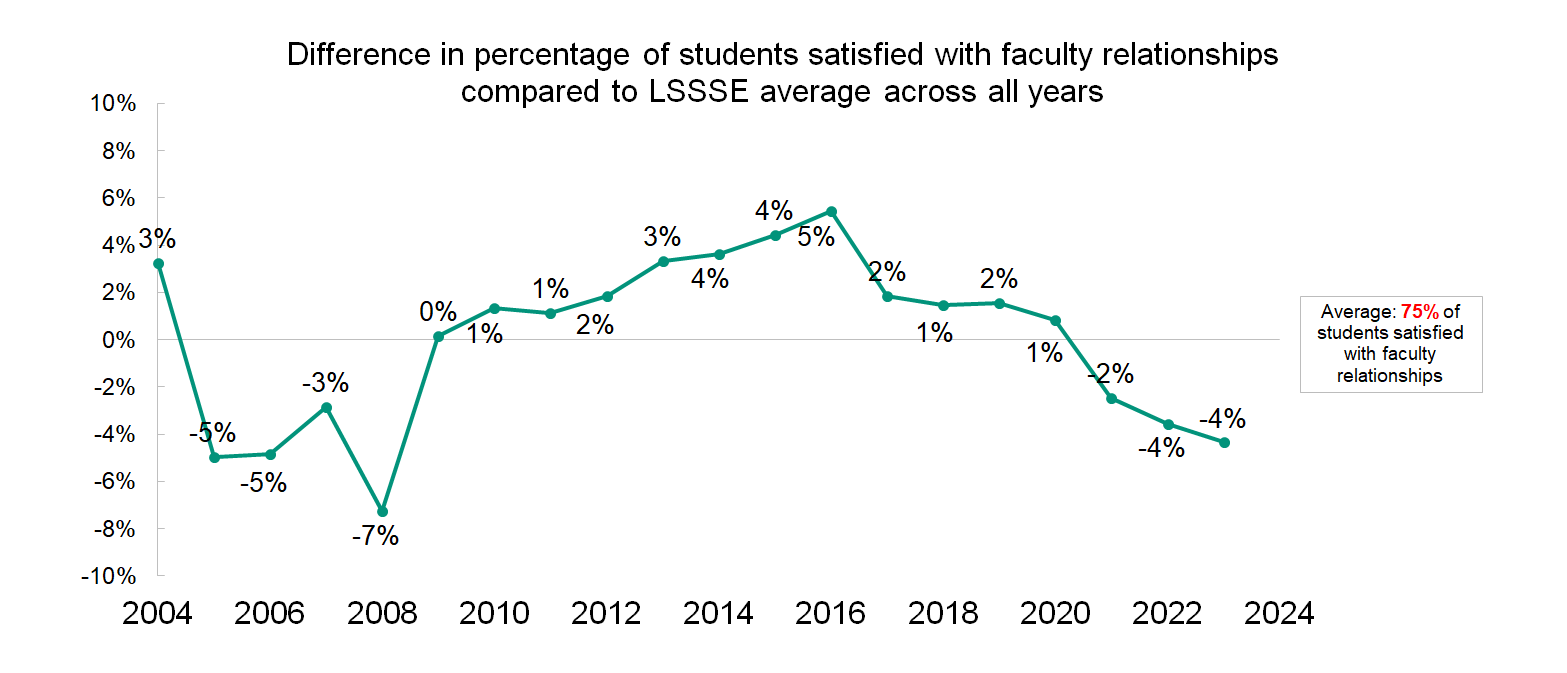
Students’ outlook on their relationships with administrators is even bleaker. The 2023 satisfaction rate of 55% is a full nine percentage points lower than the all-time average of 64%, and eighteen percentage points lower than the peak value of 73% in 2016. Although all law student relationships have been on a downward trajectory over the last few years, the relationships between students and administrators have been most strongly impacted and thus requires some special thought and attention by law schools. Perhaps the disruptions brought by COVID-19 have isolated students most severely from their administrators or perhaps the genesis of this discontent lies elsewhere.
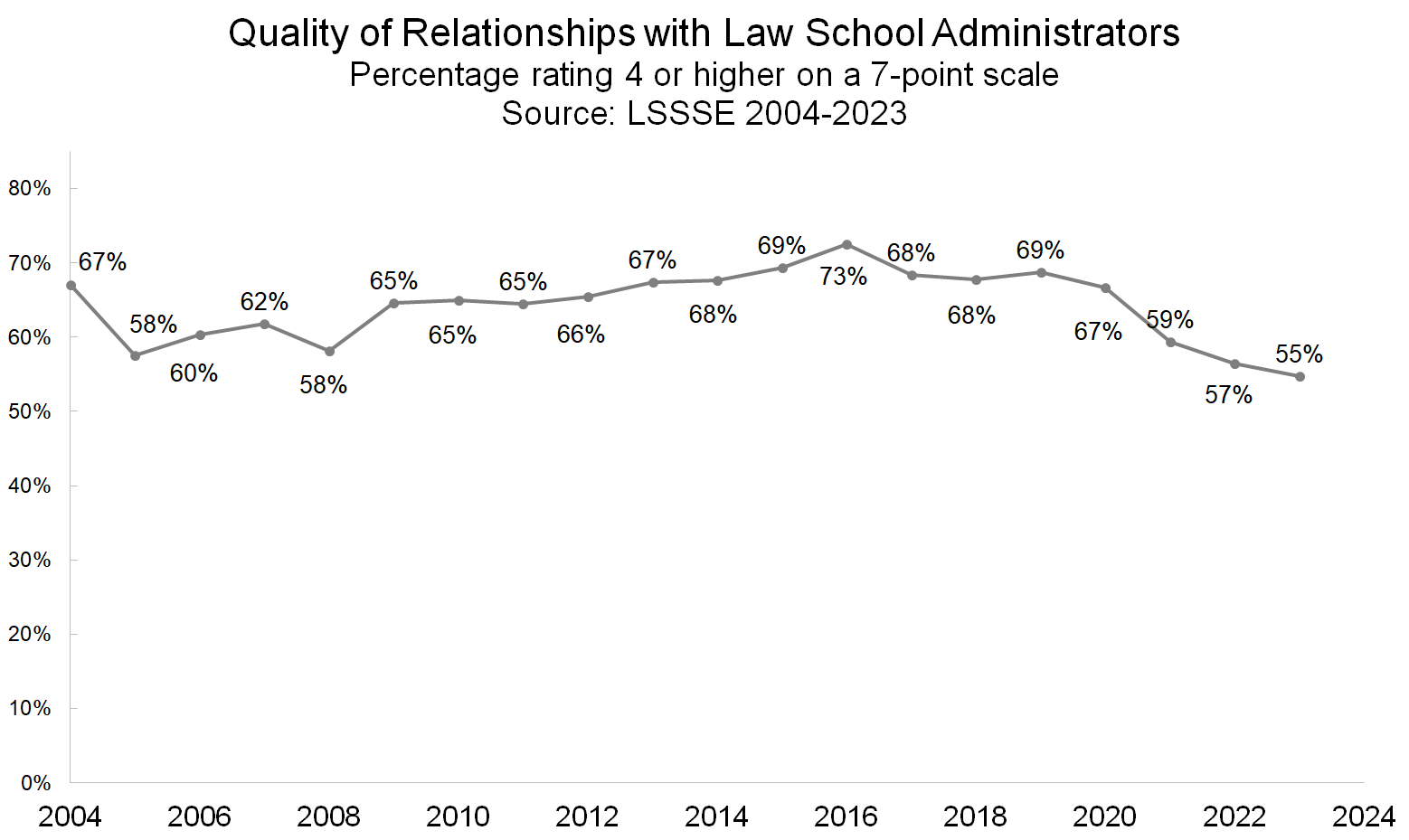
Satisfaction with relationships with administrators has been on a precipitous decline since 2016.
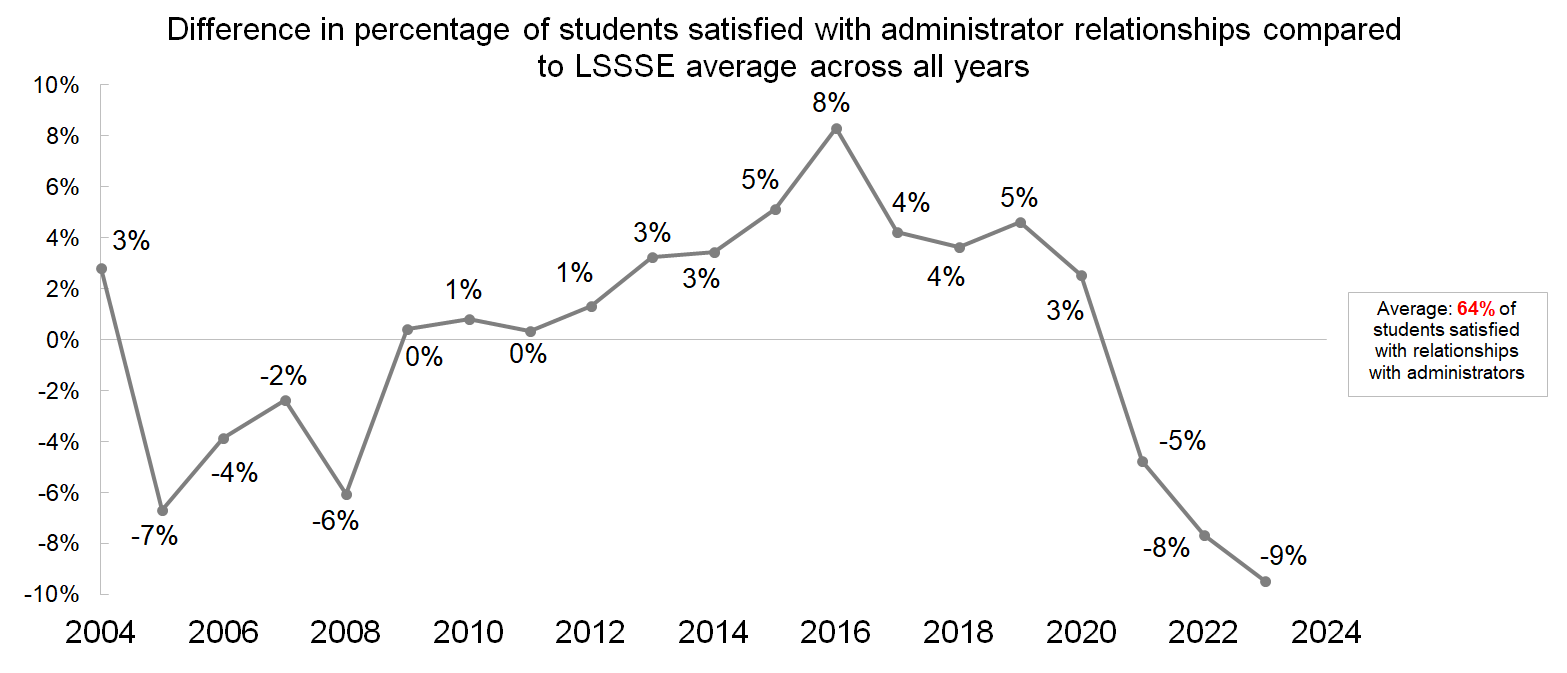
It makes sense that students have stronger relationships with faculty since students see faculty on a regular basis and are likely to come to rely on faculty for academic guidance, feedback, and mentoring. Students and faculty are united in a common goal to study and understand the law, which can foster positive regard. Administrators, conversely, may be regarded as more impersonal given that their impact on the students' learning experience is more remote. Administrators may also be responsible for implementing rules and policies with which the students may not always agree. Hence, law students may understandably experience higher levels of rapport and satisfaction with their faculty than their administrators. However, given that law students’ relationships with administrators is currently at an all-time low, it may be worth some reflection to see how law school administrators came become more engaged to make a positive impact on the lives of their students.
Relationships with Law Faculty
Law students generally have strong relationships with law school faculty members. In 2022, 71% of LSSSE respondents ranked their relationships with faculty a 5 or higher on a 7-point scale, where 7 represents faculty who are “available, helpful, and sympathetic.” Only 12% of students ranked their relationships a 3 or lower, and a mere 1% of students ranked their relationships a 1, meaning they feel that the faculty at their law school are “unavailable, unhelpful, and unsympathetic.”
Relationships with instructors are built both inside and outside the classroom. More than half (53%) of law students discussed assignments with a faculty member often or very often, and only 5% never discussed assignments with a faculty member. After completing assignments, most law students (91%) receive prompt feedback from faculty on their academic performance at least sometimes. However, only 13% say they receive prompt feedback very often, and 9% never receive prompt feedback.
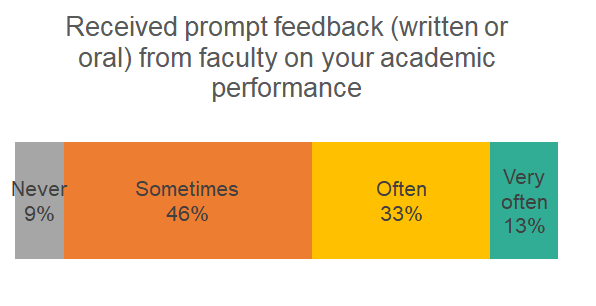
About one in five students (21%) often or very often discussed ideas from their readings or classes with faculty members outside of class, and another half (50%) did so sometimes. This practice tapers off a bit over time, with 22% of first-year students discussing ideas with faculty members outside of class often or very often compared to 19% of 3Ls and 11% of 4Ls.
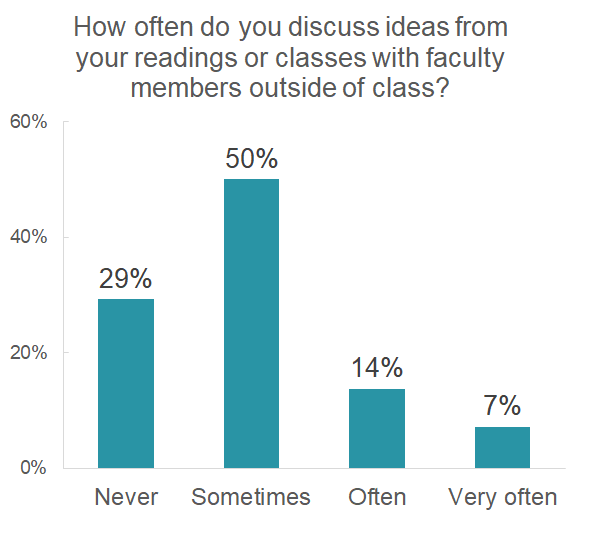
Law school faculty can provide crucial guidance about navigating the legal job market, and the vast majority of students (84%) take advantage of their advice. Just over a third of students (36%) discuss their career plans or job search activities with a faculty member of advisor often or very often. Around 82% of first-generation students (neither parent holds a bachelor’s degree) have discussed their career plans with faculty compared to 85% of their non-first-generation peers.
The relationships students form during their time in law school can be crucial to their future success. The majority of law students make the most of these relationships, and they appreciate the support and knowledge they receive from the faculty of their law schools.

